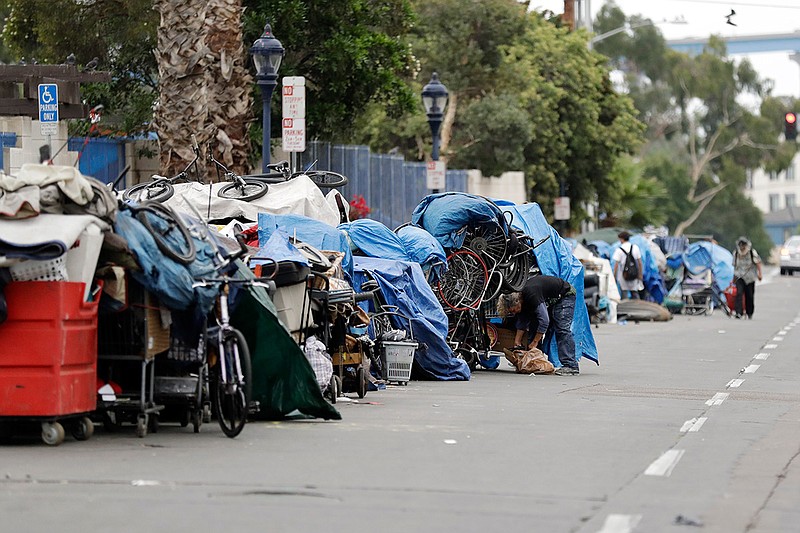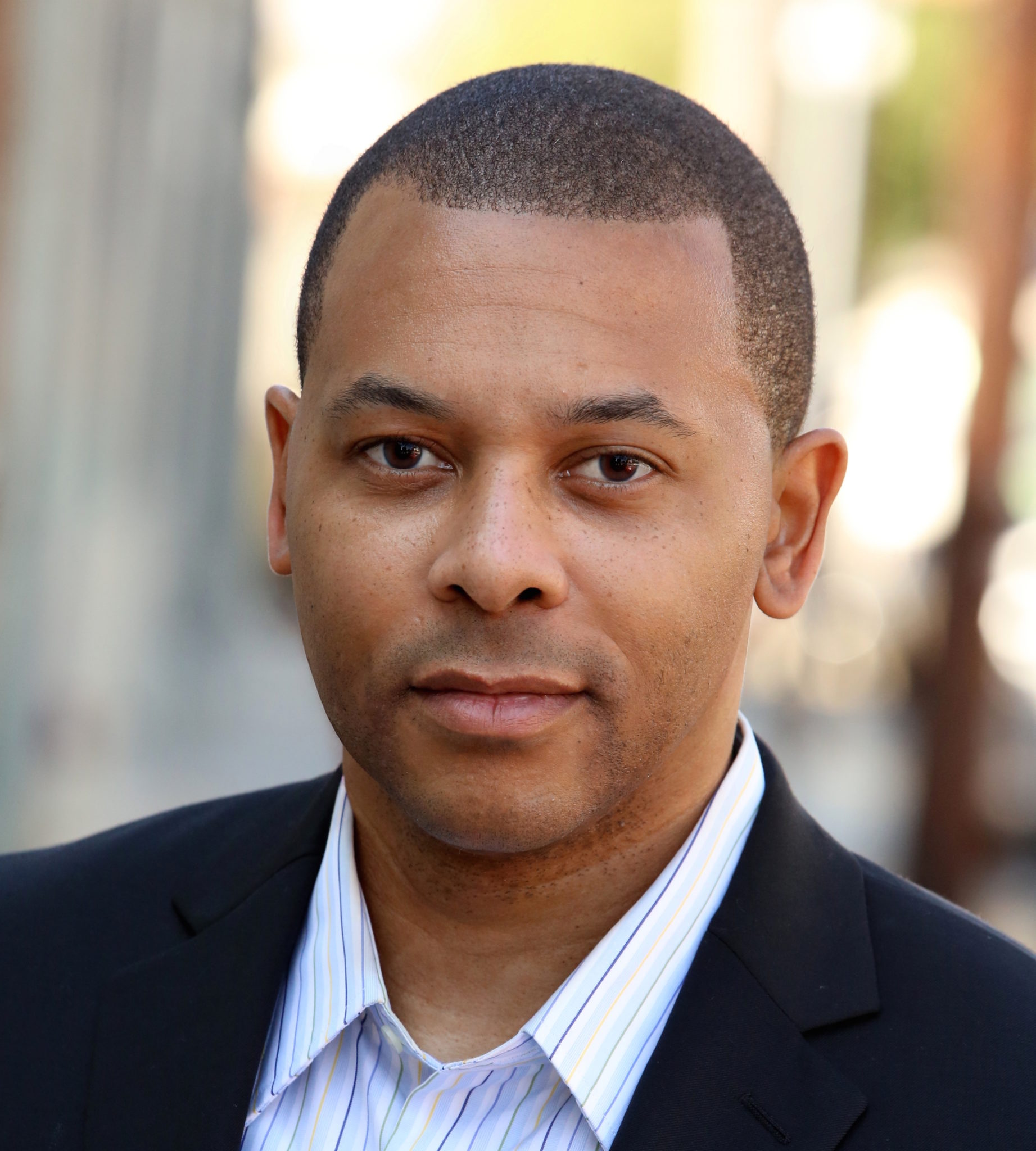How should Christians address homelessness? Despite lip service by politicians and “homeless advocates” about fixing a problem they’ve helped create; the problem is worsening.
One only need to look at California. I’ve lived in Los Angeles County (twice), Sacramento County (twice), and Sonoma County (once) across the past ten years. I’ve seen firsthand how the problem is exploited by politicians to manipulate constituents out of more money, for more resources –– only for the problem to intensify.
The Christian starting point on this issue should be a biblically based anthropology; we should reject the redefinition of compassion that facilitates the degradation of the imago Dei. Compassion shouldn’t be defined as legitimizing self-destructive behaviors that contribute to the diminishment of human dignity and quality of life.
With respect to homelessness, that’s exactly what has happened –– thanks to progressive policies attended by the muted objections of an apathetic citizenry. Believers in this approach have abdicated their moral responsibilities regarding their fellow citizens. Properly confronting this issue, reducing the size of the problem, and diminishing the human and financial costs, should start with Christian anthropology: human dignity first, not politics. Christians should lead in fundamentally recognizing the humanity of those in misery. That the homeless suffer from mental illness, substance addiction, violent behavior; live in sordidness and contract medieval diseases signifies they’re profoundly damaged people. This fact remains: they’re still people. Their humanity, however damaged, should be the starting point when dealing with homelessness; not politics.
The problem in California is out of control because political solutions have become the sole focus.
The U.S. Department of Housing and Urban Development notes California has more than 160,000 people who are homeless. San Francisco, a city that has become synonymous with policies that encourage homelessness, has more than 18,000 people living on the streets. Los Angeles County has in excess of 66,000 people who are displaced and in the city of Los Angeles, more than 41,000 are homeless.
Leftwing politicians, ‘homeless advocates’, and the media have identified the cause of homelessness as the result of exorbitant housing costs. California’s high cost of living is partially responsible for this crisis.
Seldom discussed are contributing factors that increase monthly mortgages and rental costs. These factors include superabundant environmental regulations, restrictive zoning laws, misguided rent control policies, and expanding restrictions on single-family home construction — all consequences of implementing progressive policies that prioritize reverence for the environment over the well-being of its most vulnerable citizens.
Christians can concede that inflated housing costs contribute to homelessness, but we must reject the view that it’s a comprehensive explanation for this problem.
Attributing high housing costs as the reason for homelessness mistakenly suggests that homeless people would otherwise be able to afford homes provided prices were “affordable”. However, this ignores the obvious: most homeless people are unemployed. Likewise, it willingly disregards and softens the reality that most homeless people suffer from drug and alcohol addiction, (severe) mental illness, and public policies that allow them to live as animals with few consequences — incentivizing this lifestyle.
For thirty years, San Francisco has intentionally distributed thousands of hypodermic needles for “safe” drug use, primarily to homeless drug addicts. Many used needles are discarded in city streets, sidewalks, public trash cans, homeless camps, and often playgrounds. When people abuse drugs and suffer from mental illness, they lack clear decision-making capabilities: they aren’t in control. San Francisco’s Department of Public Health is tasked with cleaning up used needles and removing human defecation from streets.
Most homeless people in Los Angeles suffer from mental illness. According to a recent UCLA study, 78 percent of the city’s “unsheltered population” suffers from mental illness, while 75 percent suffer from substance addiction.
“Tolerant” public policies permitting homelessness are due to an interdependence of sympathy and cowardice. Politicians are terrified of being accused of criminalizing or stigmatizing homelessness and being blamed for restricting people’s “civil rights” to panhandle, public encampments and drug use; so, they hide behind sympathy. Fear, excessive liberty, and irresponsible “compassion” increase homelessness and related self-destructive behaviors.
Social and legislative permissiveness dodges a central issue, to the extent that it can be applied, of society holding people accountable for their actions. It also obstructs legislation that would involuntarily admit the disinherited into treatment centers where they would receive much-needed help. Consequentially, it fosters resentment of the homeless among the general public.
The overall effect–– homelessness has been normalized. Homeless people are seen as human street appendages to be gawked at, ignored, and avoided when driving or walking down city streets.
Progressive anthropology intentionally minimizes the connection between homelessness, alcohol/drug addiction, and mental illness — preferring ideological fidelity and dishonesty regarding the reality of homelessness –– above what can be done to alleviate these destructive effects on people’s lives. By denying the obvious, elected officials prefer politically correct dishonesty concerning a protected underclass in the world of progressive politics over a human-centered approach. This attitude toward the omnipresence of homelessness further scandalizes those tormented from the disorders strongly associated with this lifestyle and rapidly diminishes what remains of human dignity.
Sympathy for homelessness has been manipulated for political purposes. It’s replaced justice and righteousness with respect to how we deal with our neighbor. The homeless have become pawns and victims –– not of circumstance –– but of an unwillingness of politicians and those who purport to speak on behalf of the indigent to admit that homeless people need more than the politics of “compassion” and public extortion to help reclaim their God-given dignity and what remains of their lives.






Comment by David on March 23, 2021 at 7:27 am
I visited San Francisco about 35 years ago and was astonished that nearly every clump of bushes in public parks had someone living inside. Homelessness is not a new problem. What makes matters worse is a lack of a cold winter that makes outdoor living impossible. Northeastern cities have much less of this problem.
Legal restrictions against vagrancy or living in public places have also been under attack by the courts over the years.
https://www.governing.com/archive/tns-homelessness-cities-cannot-prosecute-when-no-shelters-available.html
Drug addiction is a terrible thing. However, all of the prohibitions and wars on drugs have generally failed. If a person wants drugs, they can get them. The distribution of needles was to prevent sharing that is a way of transmitting HIV and other diseases. Many places require people to turn in an old needle to get a new one which reduces the improper disposal problem.
Great strides have been made in treating mental illness with medications over the years. Unfortunately, as a friend of mine with with a troubled brother was told, “All schizophrenia patients eventually stop taking their medications.” The reasons for this is not clear as the patients cannot explain their actions. It would seem that more involuntary institutionalization may be needed.
Comment by Charles Walkup, Jr. on March 23, 2021 at 9:25 pm
In the 90’s I took my cue from Mother Teresa, who held dying homeless people in her arms so they might experience love in their dying moments. Personal relationship is the key ingredient in dealing with this and other problems. We must get to know the other person. It is too easy to give a homeless person a few dollars and “feel good” because we’ve helped someone. Except that they may be planning to use it for alcohol, drugs, etc. (self-destructive purposes). So I learned to discern that when someone off the street on Sun. morning came into my church and asked for money for food, I replied “OK, let’s go next door to Bojangles and get a bite!” If then they replied “No.” I knew they weren’t really after food. Today, after moving out of the big, wicked city 4 years ago, back to the farm I grew up on, I rent my former residence to 3 guys (who I’ve screened) who otherwise might be on the street (one was in a tent) at a rent they can afford. But the best part (the “lay up treasure in heaven”) Jesus referred to is getting to know them as friends. Absent personal relationships with the homeless, they are exposed to toxic compassion.
Comment by Timothy on March 23, 2021 at 11:03 pm
Didn’t Christian churches across the country receive tax dollars to ‘sponsor’ (housing, food, healthcare, etc.) illegal aliens?
Comment by Dan W on March 24, 2021 at 8:20 am
Many, perhaps most of our homeless population, are homeless by choice. I don’t have a citation for that, it’s just an opinion formed from half a century of experience. All large cities in the U.S. had hobo jungles (camps) usually near the railroad depots. The hobo jungle adjacent to the Atlanta State Farmers Market (actually in Forest Park GA) existed at least 50 years. There was always food and firewood available from the Farmers Market dumpsters. An ambitious hobo could earn a buck nearby with a little temporary labor. Other homeless camps existed near the most affluent neighborhoods in Metro Atlanta. Local churches have ministries dedicated to providing blankets, hygiene kits and prayers, lots of prayers. I’ve helped with these ministries and listened to the personal bios and prayer requests, and prayed with/for these people.
I believe we have to accept some folks will choose to be homeless, for whatever reason. They must behave in a civilized way and be held accountable. We should treat them with dignity. Folks who are involuntarily homeless, or can’t care for themselves should be eligible for resources – because we are civilized.
Comment by John on November 18, 2022 at 2:43 pm
Great article. Thank you for addressing the core problem of homelessness. As opposed to these leftist politicians who claim they care and are helping the homeless, the reality is that their policies actually harm them. Their silly claim that homelessness is a result of the cost of housing is just an excuse to wage class warfare and lean the country towards atheistic communism. To some degree they are correct (if we sold homes for a nickel each, all the homeless would be housed), but the reality is that most choose to be homeless by refusing to do anything to get out of that situation. You can’t help those unwilling to help themselves.
Comment by John L on November 30, 2023 at 1:40 am
The left and Democrats have made the situation so much worse by defining deviancy down. It is now somehow wrong for us to pass judgment on them for drug and substance abuse. By doing so, they have normalized such behavior.
My solution, which would never be implemented, (because of the left) is stern compassion. Acknowledge their humanity. However, round them up, send them to a camp in rural areas, clean them up, detox them, teach them skills, fix their mental problems. Anyone who is disruptive or violent will be kicked out. Better to abandon one than to spoil the rest. Give them subsidized housing and a job after that for a 3 year period. After that, they are on their own. If they fall back into their old patterns, then nothing can be done for them.